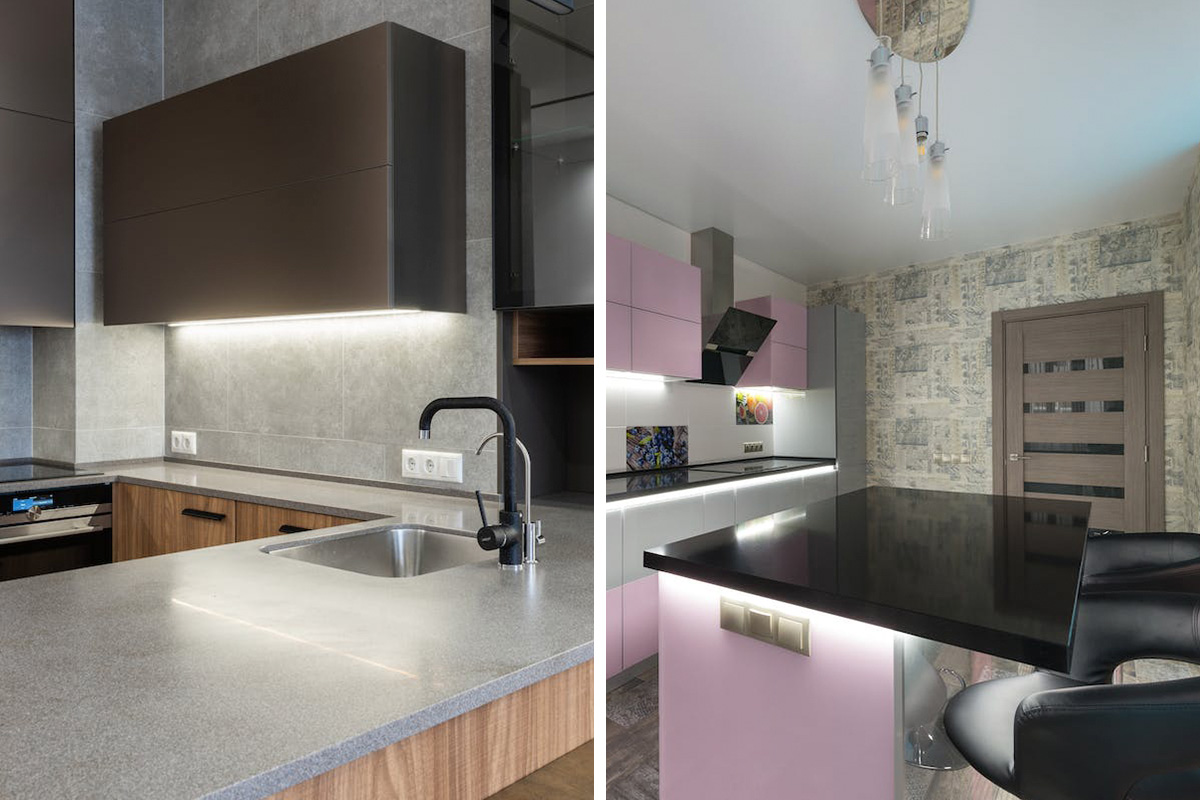
Concrete Countertops: Ultimate Guide To Long-lasting Kitchen Tops
Concrete is no longer just a dull gray substance for building roads and bridges. As long as this medium can be molded, colored, stained, and polished to achieve different effects, it’s suitable for more than just building projects.
In home design, concrete stands out for its versatility, offering creativity, exceptional durability, long-lasting performance, and sustainability. Hence, this premium material is perfect for sleek and seamless kitchen countertops!
Moreover, concrete countertops are very practical and functional. They are heat-resistant, so you can place a hot pan directly on the surface without damaging it. So, consider concrete while remodeling your space into the dream kitchen that would last.
Modern concrete kitchen designs inspired us to curate this guide. Here, you’ll find pros and cons, ten design ideas with different concrete countertop colors, a step-by-step guide to DIY concrete countertops, maintenance tips, and prices. That’s pretty much all you need to consider about concrete tops in your kitchen!
Concrete Countertop Ideas for Your Kitchen
The durable concrete isn’t just the perfect countertop for cabinets, tables, or kitchen islands. You can customize them in your favorite color and finish. It’s more than possible within the broad spectrum of concrete countertop solutions.
Although natural concrete is light gray, many more color options exist. Concrete countertop colors basically vary between the rainbow and your imagination. Hence, if you’re looking for inspiration, we’re thrilled to share ten different design options! Also, if you loved specific design ideas from this list, let us know in the comments!
#1 Rough Concrete Countertops
Rough concrete countertops are made with a textured finish that resembles natural stone. They are designed to create a rustic and industrial look and provide durability and customization. These countertops possess a rugged, raw appearance and can be customized with added aggregate for a unique aesthetic. The hand-troweled, roughened finish contrasts nicely with smooth cabinets.
#2 Black Concrete Countertops
Suppose you want to make a statement with your kitchen renovation. In that case, black concrete countertops create a dramatic effect when combined with other elements, such as white kitchen cabinets, light backsplash, and metallic fixtures. Black concrete countertops also complement various styles, from modern to farmhouse style.
#3 Colorful Concrete Countertops
Colorful concrete kitchen countertops usually have embedded glass fragments, stones, shells, and integral pigments or dyes. Concrete countertop colors vary through the color wheel, so you can opt for any shade. Even white concrete wouldn’t look boring! However, colors can make your kitchen even more lively, creating a focal point, expressing your personality, creativity, and taste.
#4 Honed Concrete Countertops
This kitchen design idea involves using concrete as the material for the countertop surface and polishing it with diamonds up to a grit no finer than 400 grit. Honed concrete countertops have a soft, matte look that resembles natural stone. They suit different kitchen styles, from modern and elegant to rustic and traditional.
#5 Polished Concrete Countertops
Looking for some shiny countertop ideas to fit your kitchen interior? Opt for concrete kitchen countertops polished with diamonds to a high gloss finish. These countertops have a sleek and shiny look mimicking natural stone or granite, making them perfect for contemporary kitchens.
#6 Stained Concrete Countertops
Do you often feel annoyed by the shiny surfaces showing all the dirt? This idea can perfectly fill your needs, as its variegated surface won’t betray not-so-perfectly clean surfaces. Stained concrete countertop design involves the addition of colors to create a vibrant and unique look, closely resembling the aesthetic of natural stains.
#7 Stamped Concrete Countertops
Looking for a concrete kitchen countertop with a heavy-textured and decorative look? Opt for stamped concrete countertops mimicking various materials like marble, quartz, wood, slate, brick, and more. The stamp is applied while the concrete is at the right consistency—soft enough for the pattern impression but not so wet that the impression will fill back in.
#8 Veined Concrete Countertops
Image credits: Simona Sergi
Veined concrete countertops can make the perfect statement in your sophisticated kitchen design! These stylish and elegant countertops, mimicking marble countertops, are made by creating veins of different colors and textures. As you already noticed, designs that mimic natural stone are widely popular. You can create colorful veins that imitate precious gemstones or galaxies if you want a different look.
#9 Recycled Concrete Countertops
Did you know it’s possible to make countertops using recycled concrete? This concrete has been crushed or pulverized and reused for new construction works. Recycled concrete can be as durable as the fresh material. Countertops made this way are sustainable and environmentally friendly, reducing waste, saving natural resources, and lowering carbon footprint.
#10 Acid-Etched Concrete Countertops
Image credits: directcolors
Would you like to equip your kitchen with a unique, artistic concrete countertop that creates a mottled, variegated effect? Consider acid-etched concrete countertops. These countertops are made by applying colors onto cured concrete, triggering a chemical reaction that changes the color of the concrete. Acid stains produce a mottled or stone-like appearance and are usually limited to earthy tones. They are also permanent and UV-resistant.
Pros and Cons of Concrete Kitchen Countertops
When evaluating the suitability of concrete as a countertop material, it’s essential to weigh its pros and cons. While concrete countertops offer a unique and customizable aesthetic, one question arises: is concrete a good choice for countertops?
Although it’s hailed for durability, concrete countertops come with certain drawbacks that may impact the overall satisfaction with this trendy yet challenging material. Exploring the pros and cons is integral to deciding whether concrete fits your needs.
Pros of Concrete Countertops
- Customization and Versatility. Concrete countertops are customizable and versatile, as you can choose the shape, size, color, finish, and edge style and embed items like glass, stones, shells, or fiber-optic lights to create a unique look.
- Durability and Longevity. Concrete is very durable, long-lasting, tough, and resistant to scratches, chips, cracks, and heat. It can last for decades if properly sealed and maintained.
- Luxury and Style. These countertops are premium and stylish. Concrete is considered a high-end material that can improve the resale value of your home.
Despite the increasing popularity of concrete’s industrial aesthetic and customizable designs, it can also have its fair share of cons. So, what are the disadvantages of concrete countertops?
Cons of Concrete Countertops
- High price and Labor-intensive. Concrete countertops cost quite a lot and also require intensive labor. They need a lot of preparation, such as building support frames, leveling, shimming, and curing.
- Staining and Bacteria growth. Concrete is a porous material that can absorb spilled liquids and show stains if improperly sealed. It can also harbor bacteria and mold in the pores and cracks. Therefore, concrete countertops need regular sealing and waxing to prevent these issues.
- Heaviness. Concrete countertops can weigh a lot, putting extra stress on your cabinets and floors. You need to ensure that your cabinets and foundations can counter the weight of the concrete and have proper support for sinks and faucets.
Step-By-Step Guide to DIY Concrete Countertops
Embarking on a DIY concrete countertops project offers a unique opportunity to elevate your kitchen space with a one-of-a-kind design element. As you contemplate the design of your culinary haven, envision a surface that seamlessly complements your preferred aesthetic but also exceeds the basic functionality of an IKEA kitchen. Sounds good, doesn’t it? If so, let’s proceed with the project.
How to Make Concrete Countertops?
There are many ways to make DIY concrete countertops. Here, we present a general overview of the eight steps. If you prefer a visual demonstration or want to ensure you understand the steps correctly, we recommend watching the concrete countertop tutorial video.
Step 1
Working with concrete is quite messy, so you better start by protecting your floors with taping rosin paper. To protect walls and cabinets, use pre-taped plastic sheets.
Step 2
As concrete is a heavy material and you must inlay it liquid on-site, precise measurements are required. Measure and cut a cement board to fit the top of your vanity or cabinet. Cut out holes for the sink and faucet if needed. You can use a circular saw or a jigsaw to cut the cement board, and a drill or a hole saw to cut the holes.
Step 3
Cut out and attach edging strips and mesh to the cement board to create the form for the concrete. Use silicone sealant to seal the edges and corners. The edging strips can be made of wood, metal, or plastic, and they will give your countertop a finished look. The mesh will reinforce the concrete and prevent cracking.
Step 4
Mix and pour the concrete into the form, following the instructions on the package. Use a trowel to spread and level the concrete. When concrete is poured, tap the form to remove any air bubbles. You can use ready-mix grout or a custom mix with additives, such as pigments, fibers, or aggregates, to create different effects.
Step 5
As concrete requires days to cure, let it set for at least 24 hours or as the manufacturer directs. While it cures, don’t move or disturb the form. You can cover the form with plastic to prevent moisture loss and speed up the curing process.
Step 6
Remove the form and polish the surface with sandpaper or a grinder if desired. You can use different grits of sandpaper or diamond pads to smooth and refine the concrete counter and expose the aggregates or embedded items, if any.
Step 7
Apply a concrete sealer to protect the countertop from stains and water damage. You can choose from different types of sealers, such as penetrating, topical, or hybrid, depending on the level of protection and the look you want. Follow the instructions on the sealer package for the best results.
Step 8
Attach the sink and faucet, and enjoy your new concrete countertop! To complete your kitchen design, you can add finishing touches, such as backsplash, light fixtures, or accessories.
Maintenance and Lifespan
One of the most important aspects of choosing a kitchen countertop is its maintenance and lifespan. Like all other materials, concrete requires some care and attention to keep it in good shape. Let’s go through the most topical basics of concrete countertop maintenance.
Are Concrete Countertops Hard to Clean?
Concrete countertops aren’t hard to clean, but we recommend following a few simple guidelines.
- Clean up spills as fast as you notice them. It’ll help to prevent stains.
- Use a pH-neutral cleaner, such as granite cleaner, to clean concrete countertops using a soft cloth or sponge.
- Polish in a circular motion and then rinse countertops with water to remove any dirt or stains.
- Disinfect using a diluted solution of hydrogen peroxide or rubbing alcohol. Firstly, test it on a small, discreet area.
Do Concrete Countertops Scratch or Crack?
Image credits: wackynuts
Generally, concrete isn’t too sensitive to excessive stress, such as heavy loads, temperature changes, or improper installation. However, concrete countertops can crack if not properly reinforced, supported, or cured. Yet still, most cracks are often cosmetic.
Concrete countertops are fairly scratch-resistant but not scratch-proof. Use pads to protect concrete surfaces and avoid cutting or chopping directly on the surface, which can leave marks or damage the sealant.
How Long Do Concrete Countertops Last?
The exact lifespan of concrete countertops depends on the quality of the installation. If well-maintained, concrete is a highly durable material that lasts decades, withstanding regular use and wear and tear. However, it requires proper maintenance. In addition to the previously mentioned tips for cleaning and preventing scratches and cracks, consider following these tips:
- Avoid using abrasive products like soap or bleach that can damage the surface or leave behind a residue.
- Ensure regular waxing and annual sealing to protect the surface from stains and scratches.
How Much Do Concrete Kitchen Countertops Cost?
If you are considering installing concrete countertops yourself or hiring professionals, here’s what you should expect to pay:
- The average cost of concrete countertops ranges from $55 to $175 per square foot, including materials and professional installation.
- The material itself costs between $5 and $15 per square foot. As the other half of the price consists of the commission for the labor, making your own DIY project for concrete countertops can be rewarding and cost-effective.
In both cases, the price typically increases with a more intricate finish and extra customization options, like coloring, staining, or adding other decorative elements.
What Is the Best Countertop for Your Money?
The best countertop for your money depends on your preferences, budget, and lifestyle. Many types of countertop materials are available, each with its advantages and disadvantages. However, what are the most popular options?
Regarding durability and resistance, homeowners often choose concrete, granite, and quartz countertops. However, they do come with a higher price tag. A more affordable, though still classy, option is tiles. Or, if you’d rather go for something more budget-friendly, consider using a laminate countertop.
Are Concrete Countertops Cheaper than Granite?
Image credits: Clay Banks, Curtis Adams
It’s a common misconception that concrete countertops are less expensive than granite; however, they aren’t. Actually, concrete prices are either similar to granite or even higher, depending on particular features. Concrete countertops cost an average of $55 to $175 per square foot. In contrast, granite countertops cost an average of $60 to $150 per square foot. These prices include the cost of installation.
Achieving a Durable Kitchen: The Key to Success
With newfound knowledge about durability and aesthetics, you can create the stunning culinary workspace you’ve always dreamed of. Trust us: with a countertop that can withstand the test of time, your new cooking space will bring you happiness for years to come!
217views
Share on FacebookYou lost me at bacteria (and all the others cons). But luxury? Not really though? Or it shouldn't be at least.
You lost me at bacteria (and all the others cons). But luxury? Not really though? Or it shouldn't be at least.
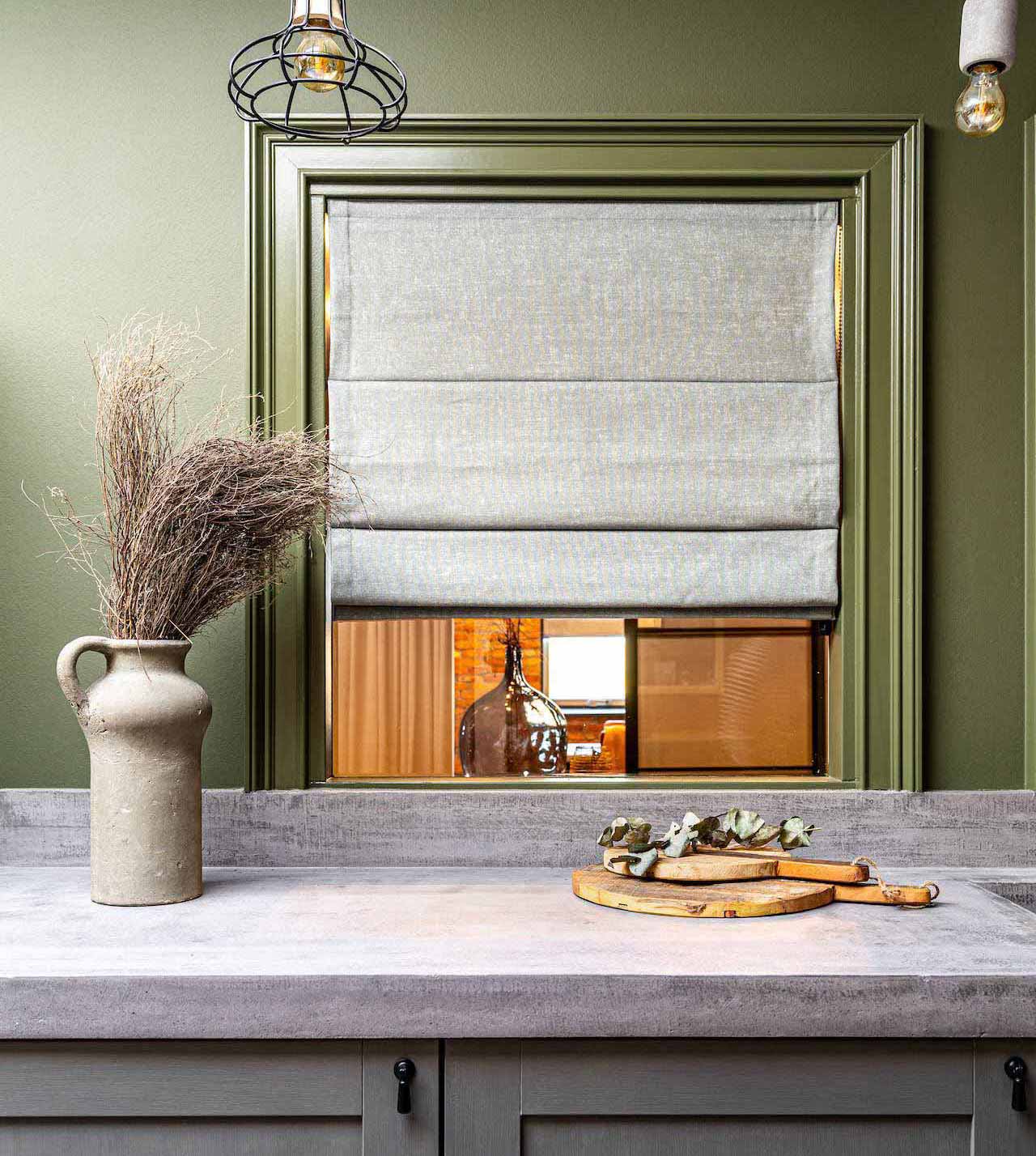
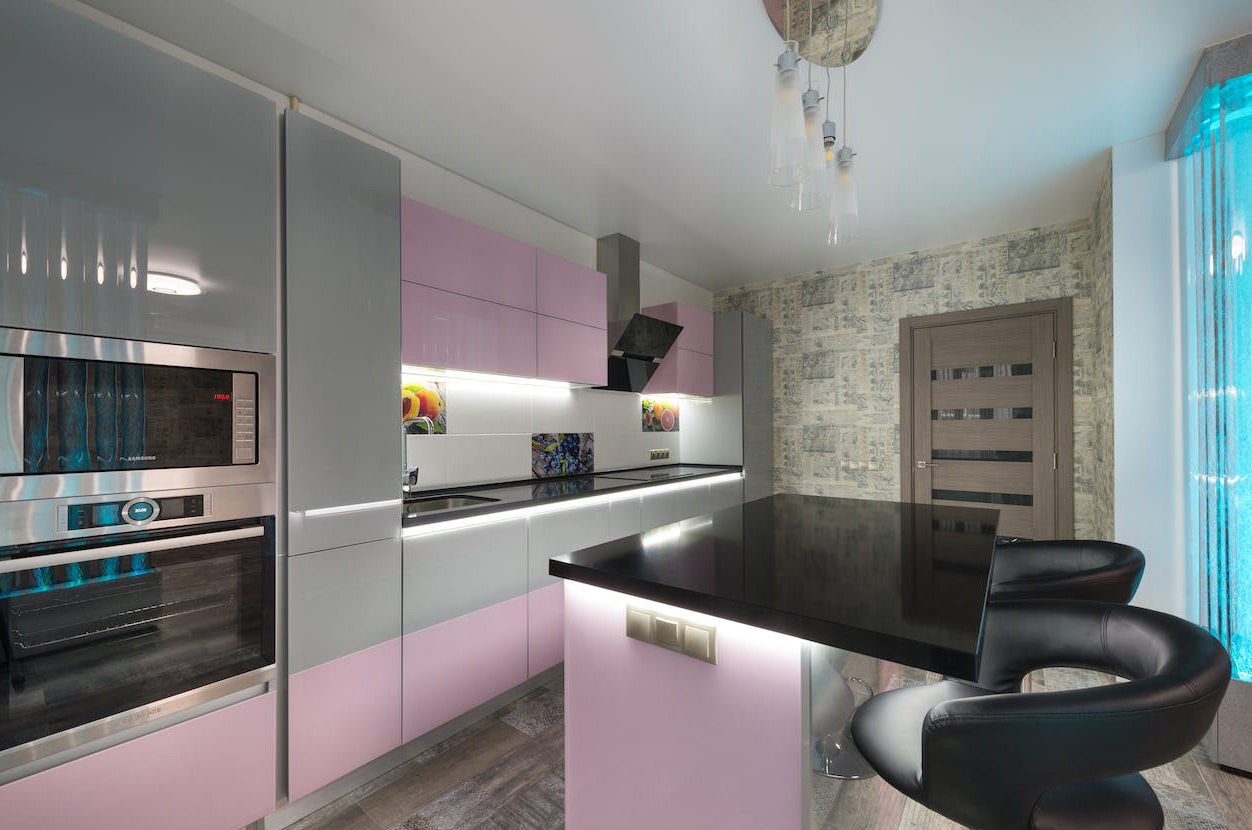
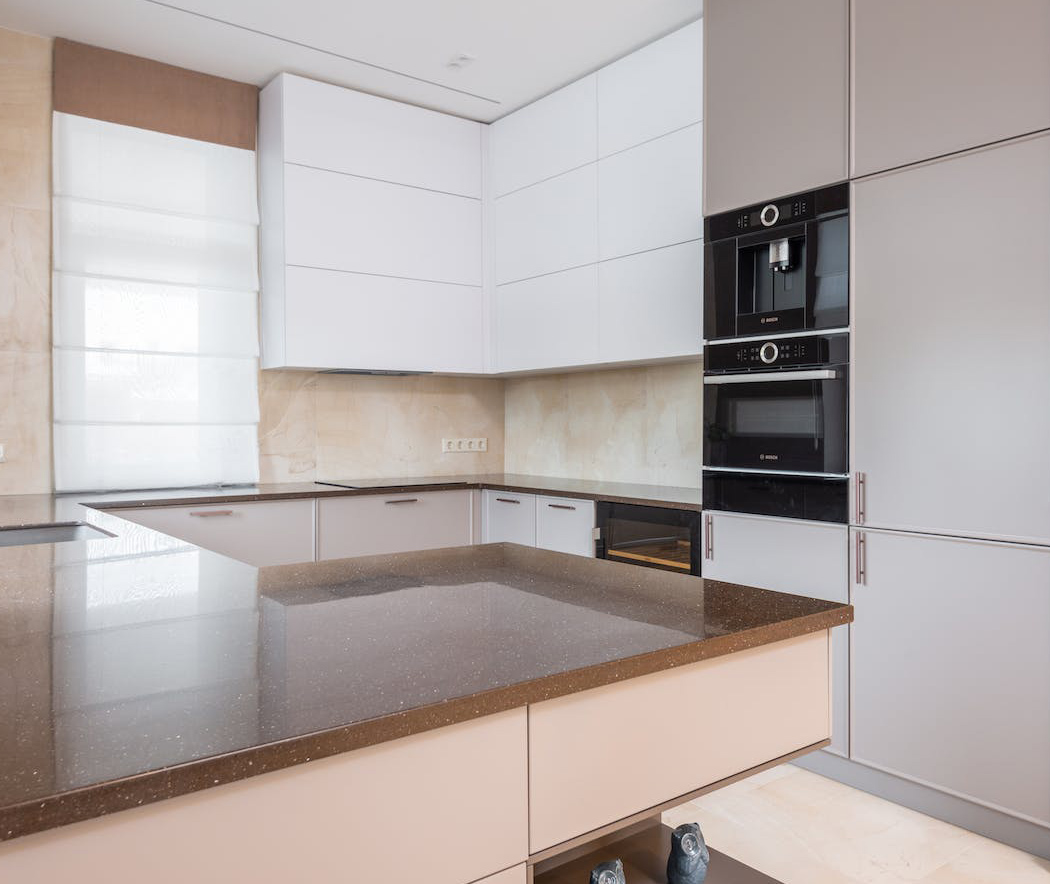
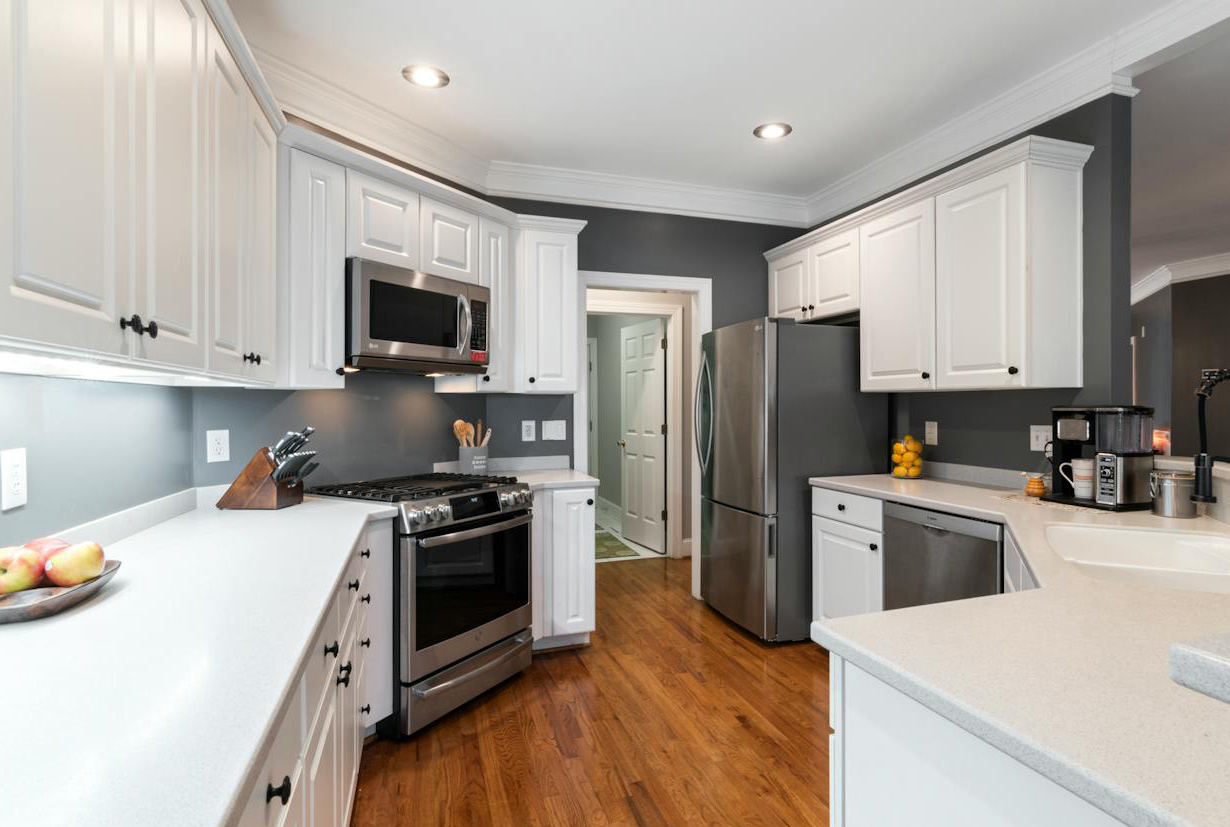
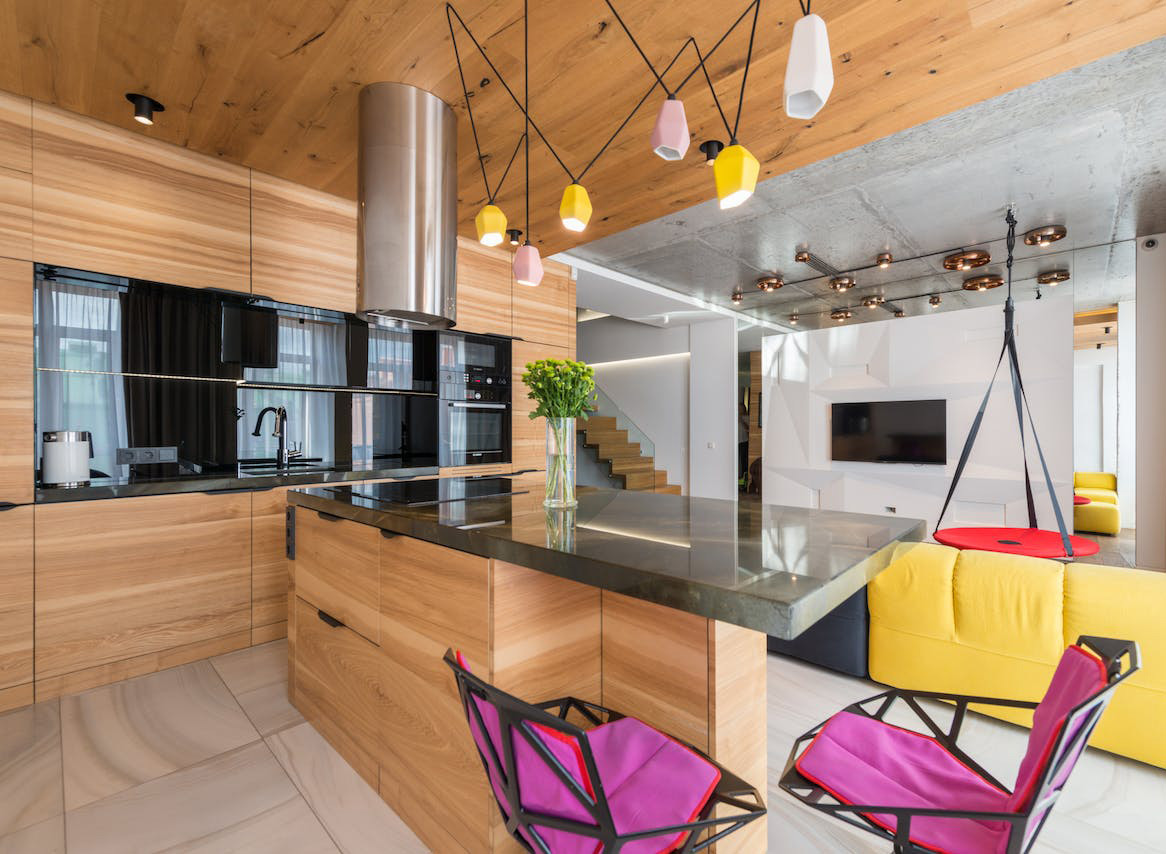
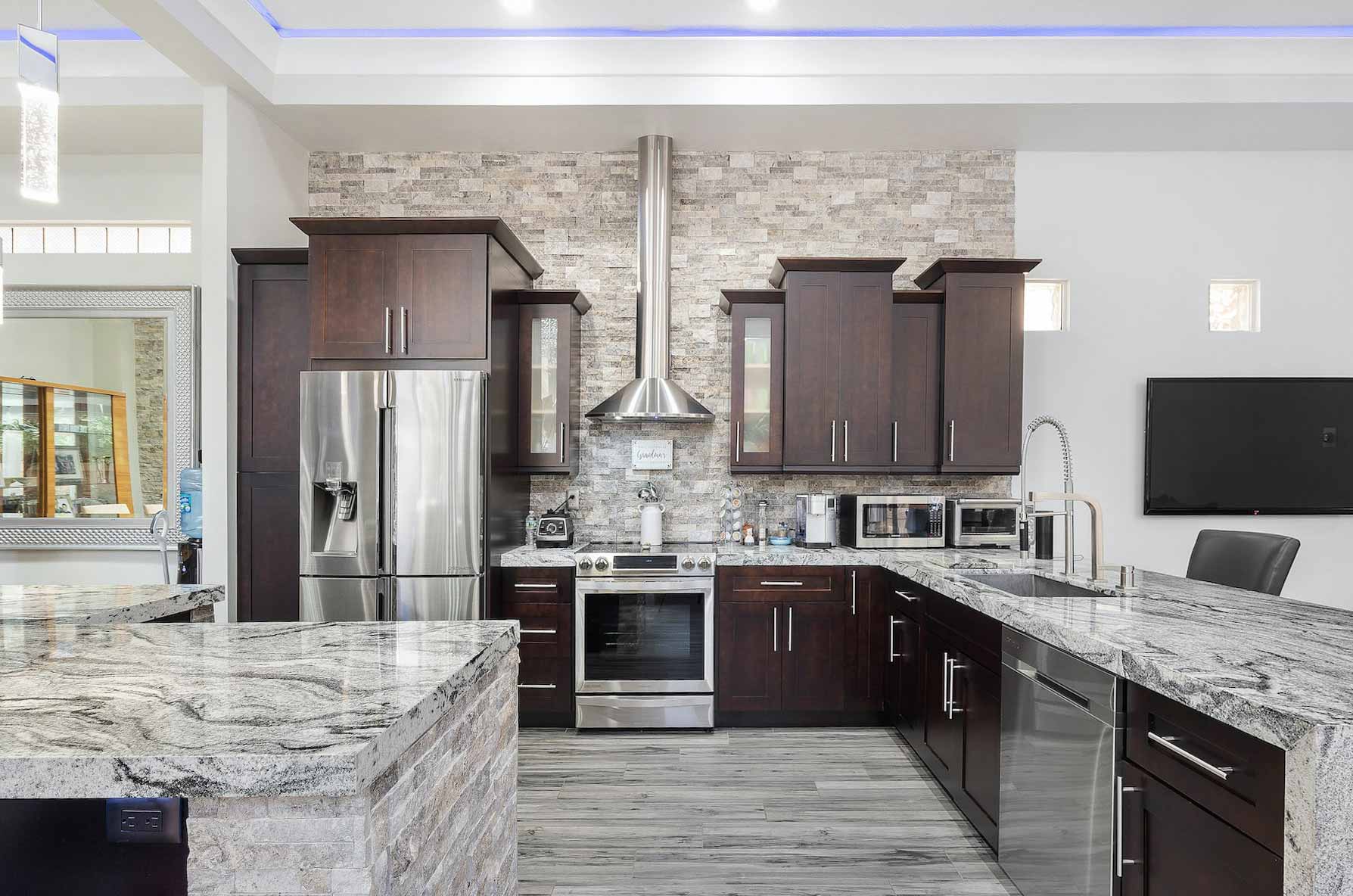
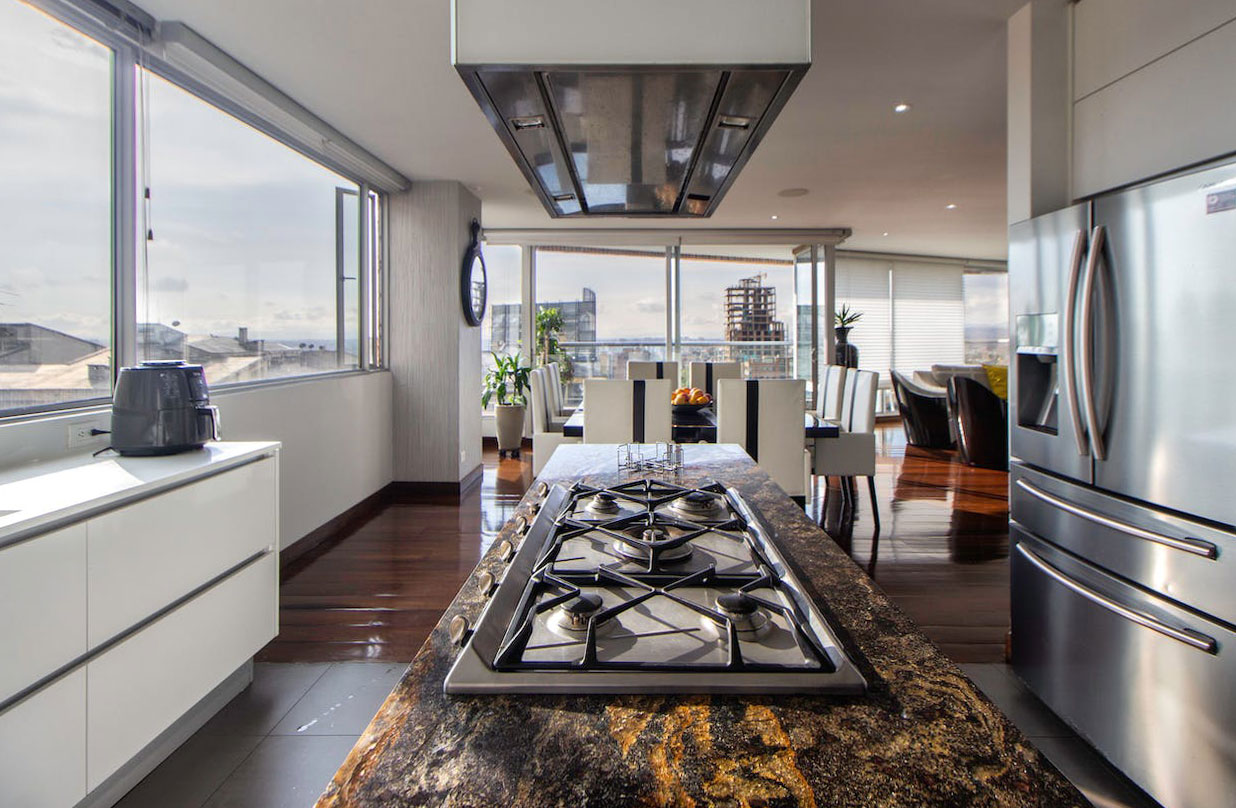
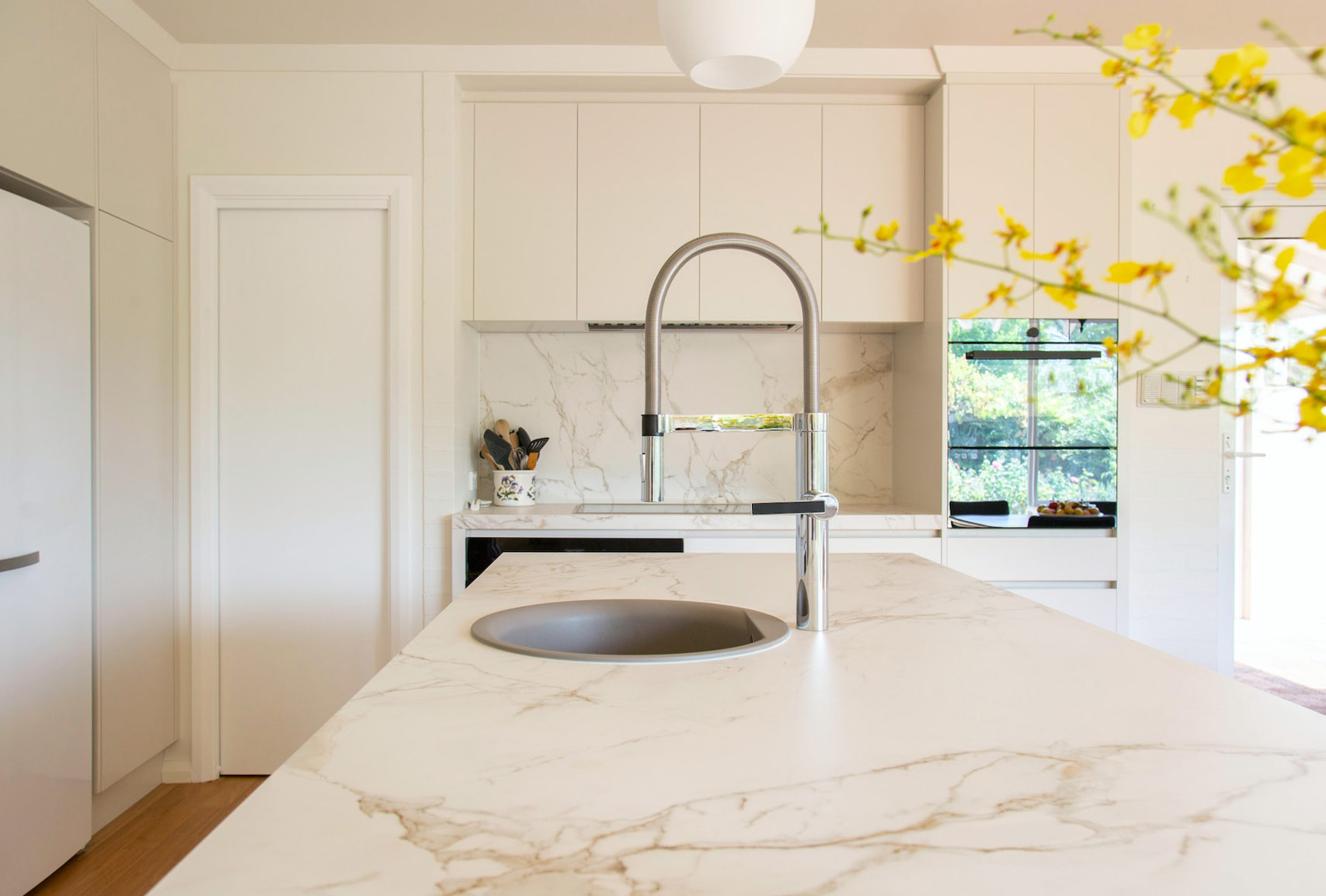
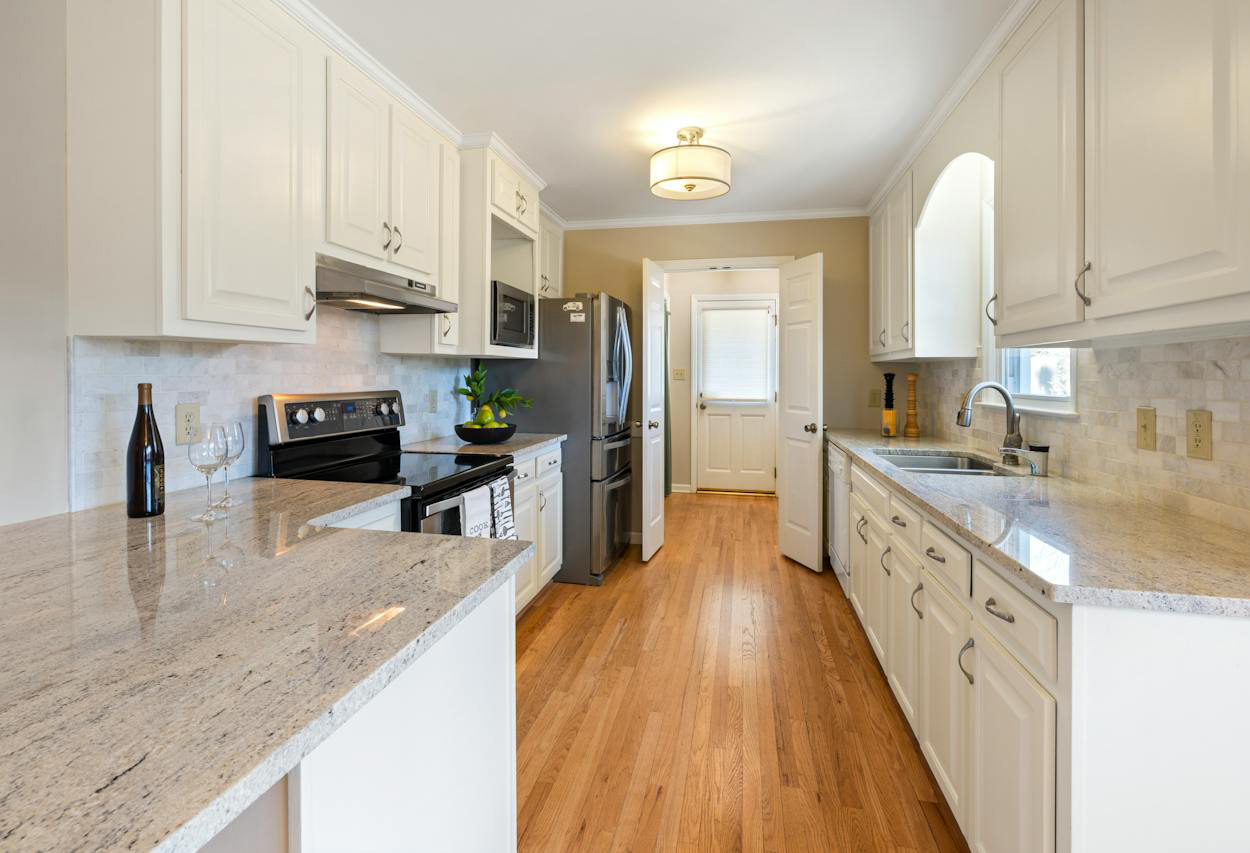
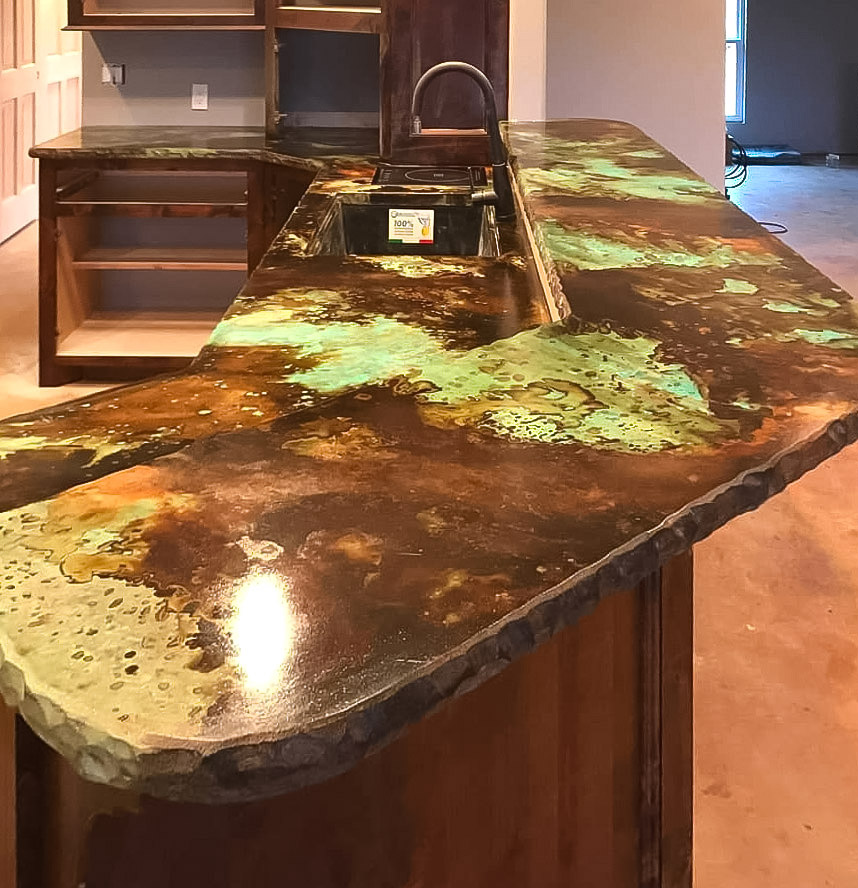
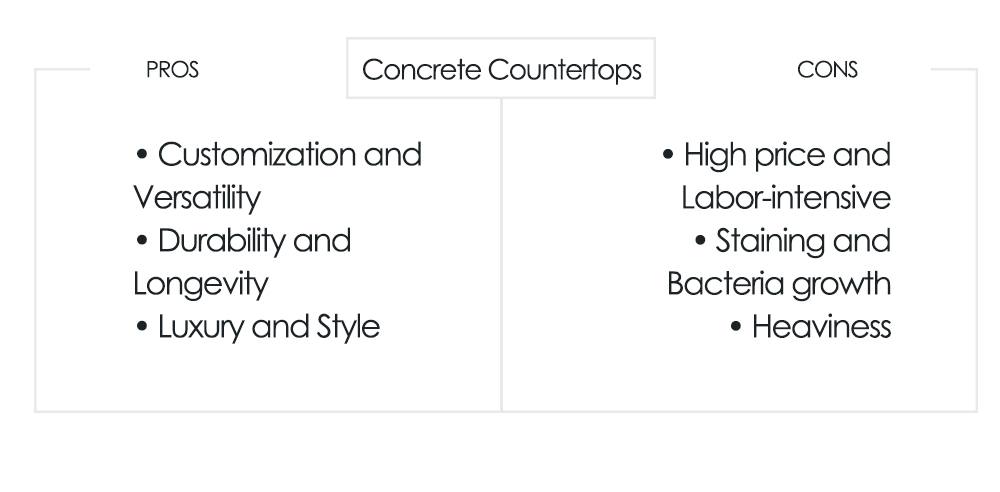

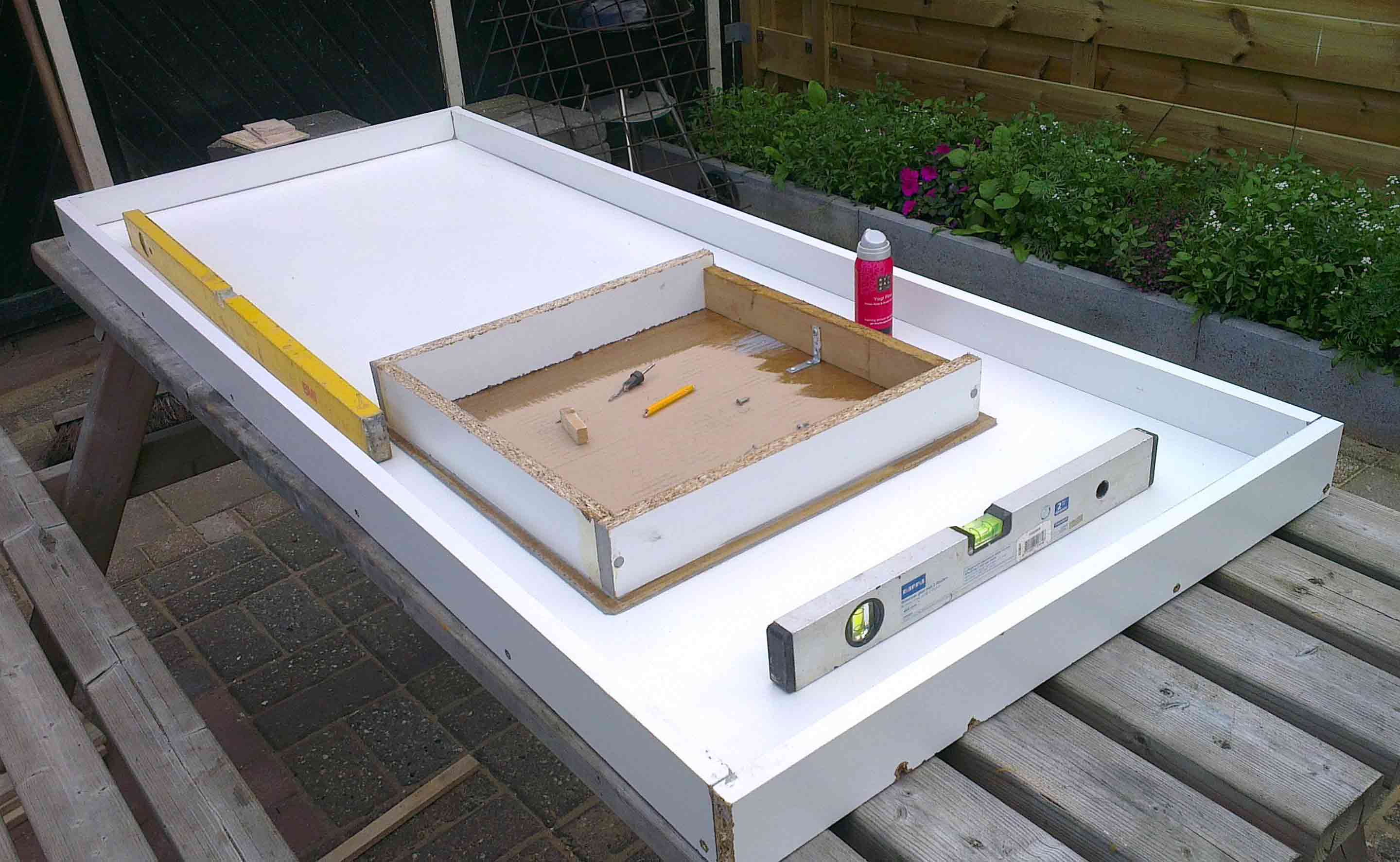
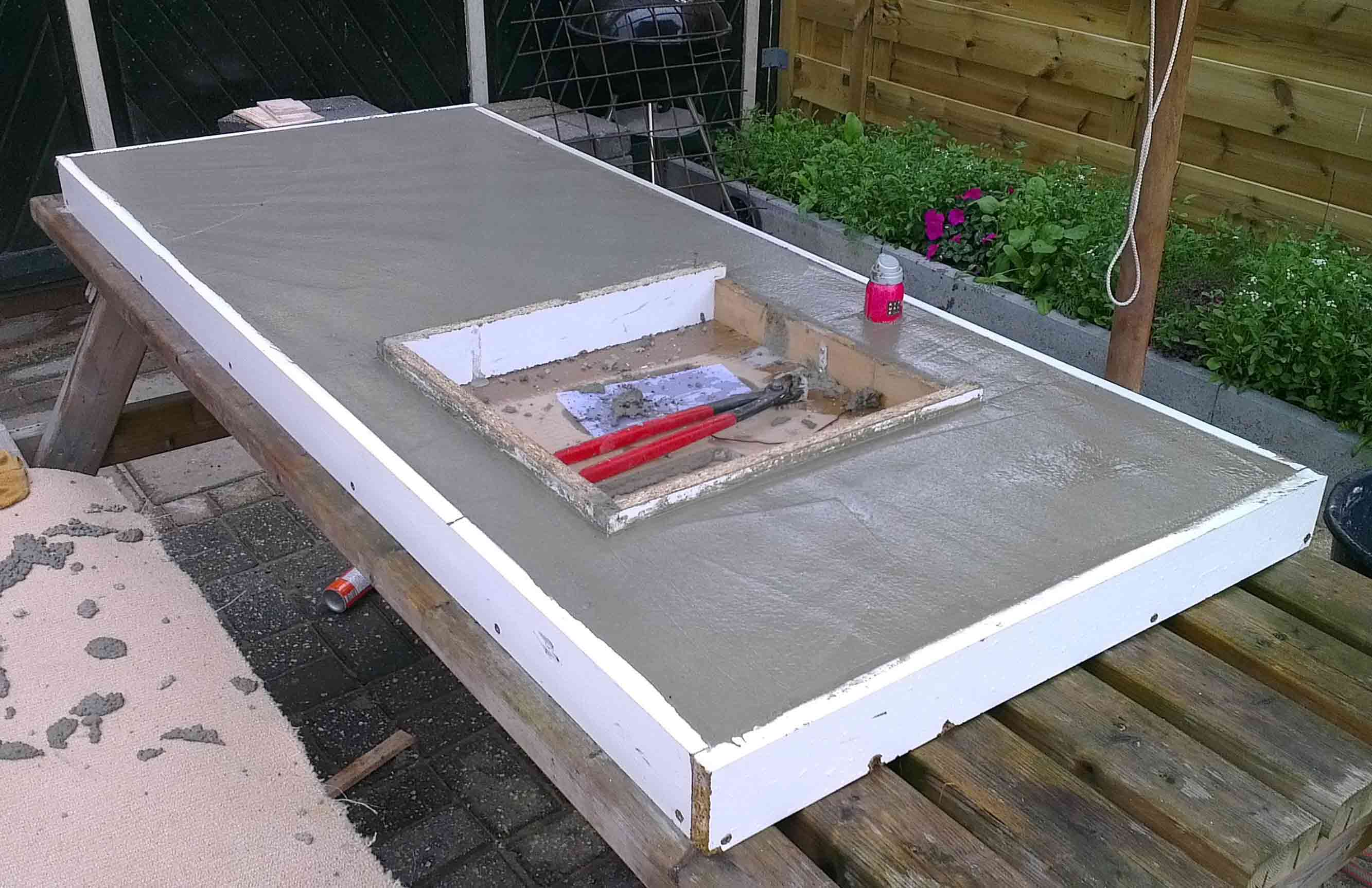
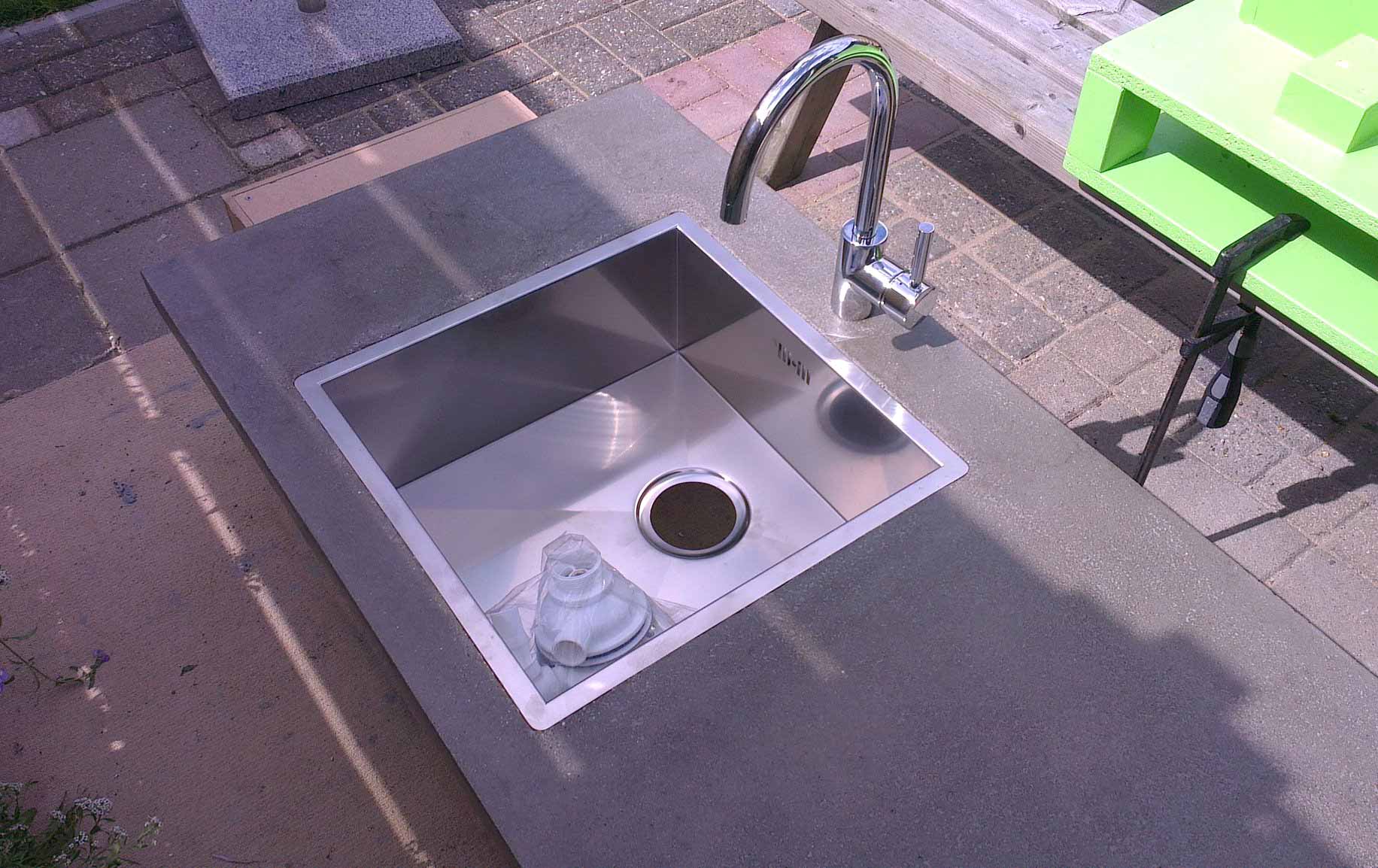
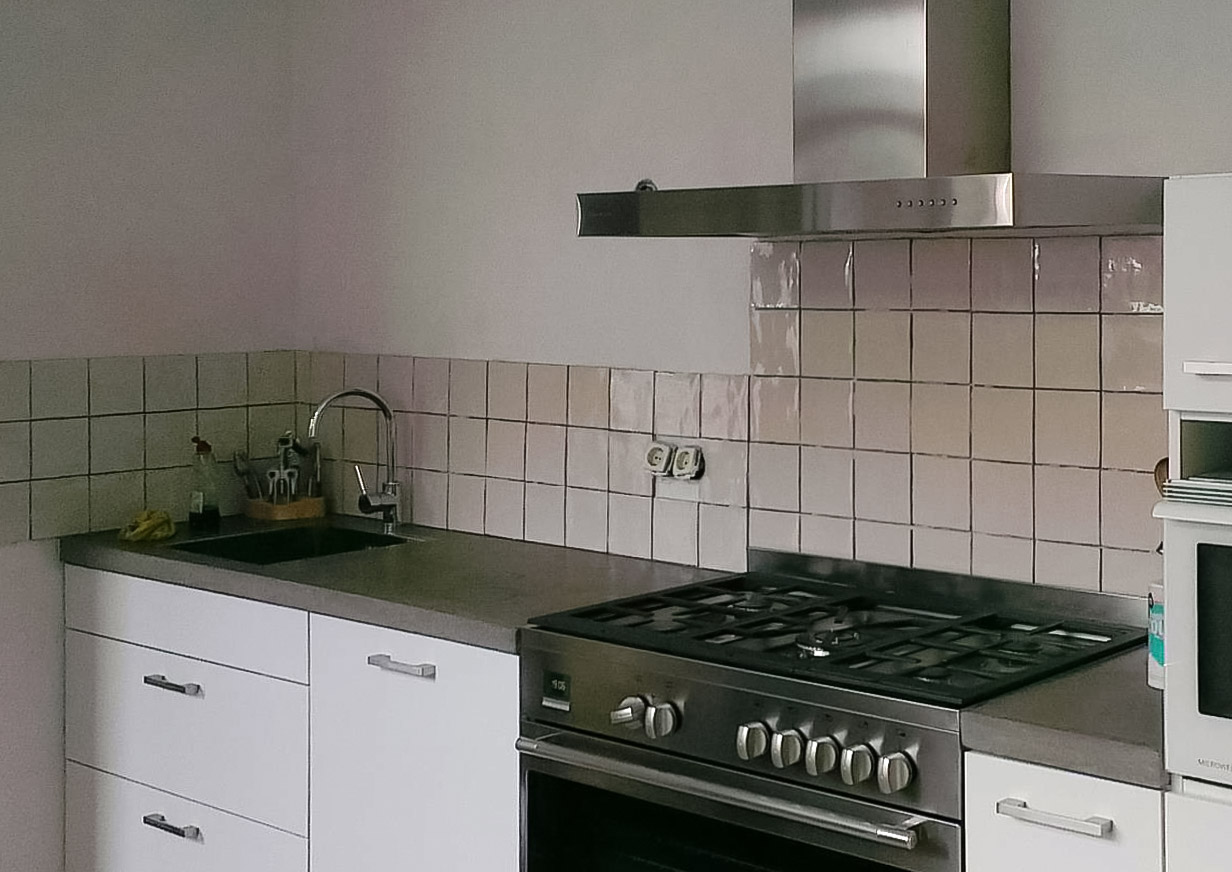
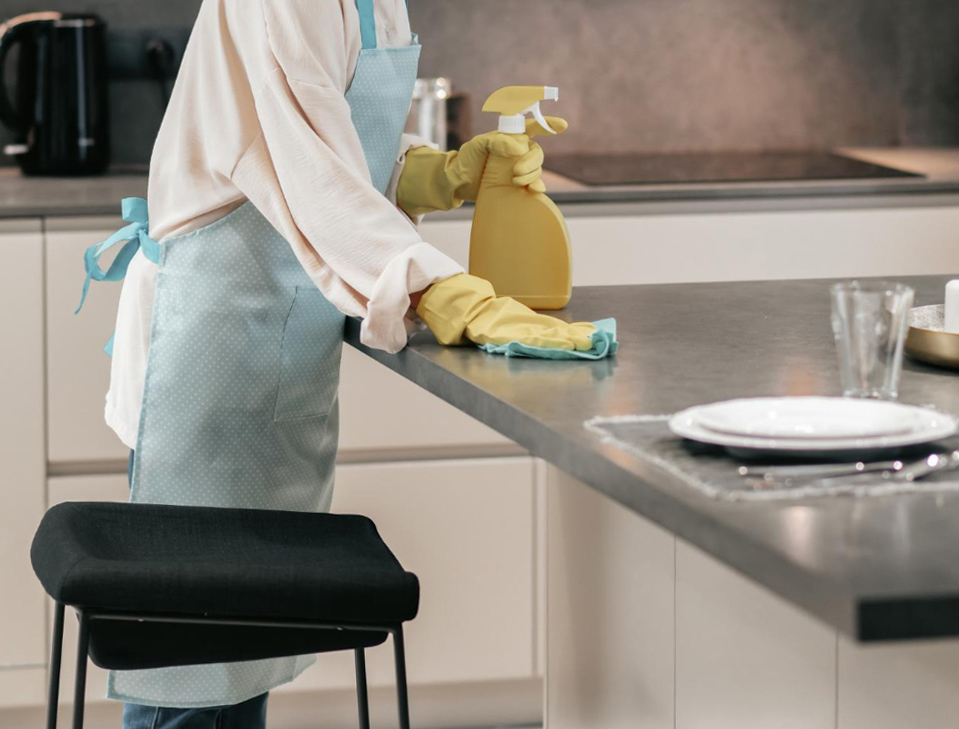
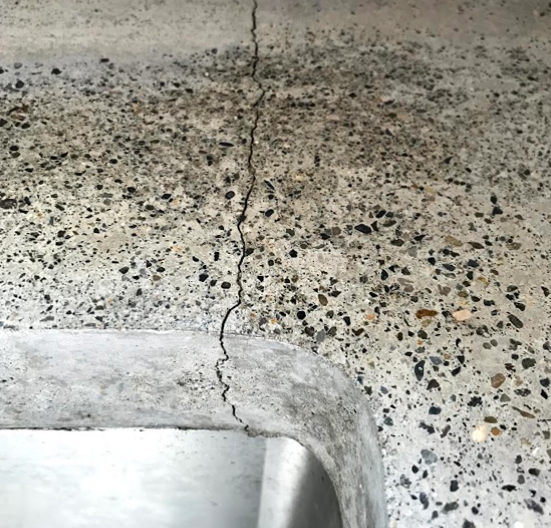
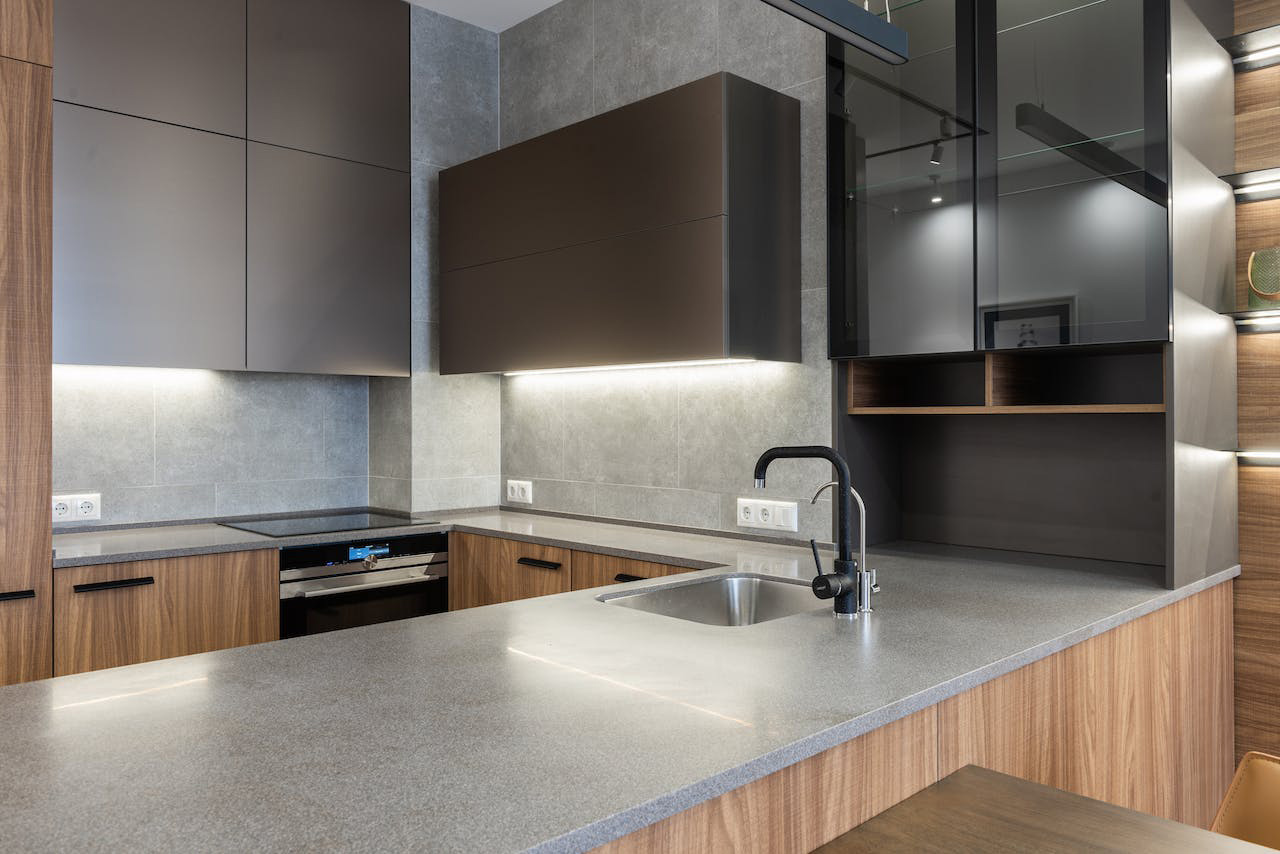 Image credits:
Image credits: 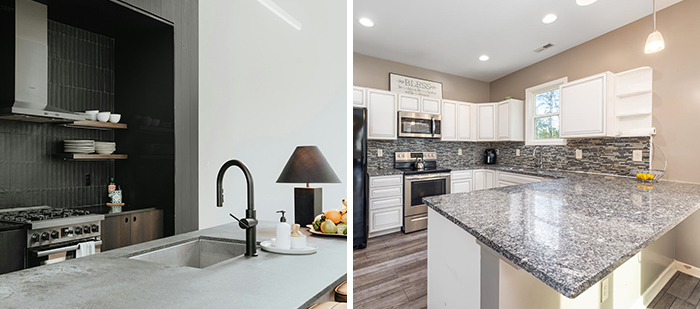




2
1